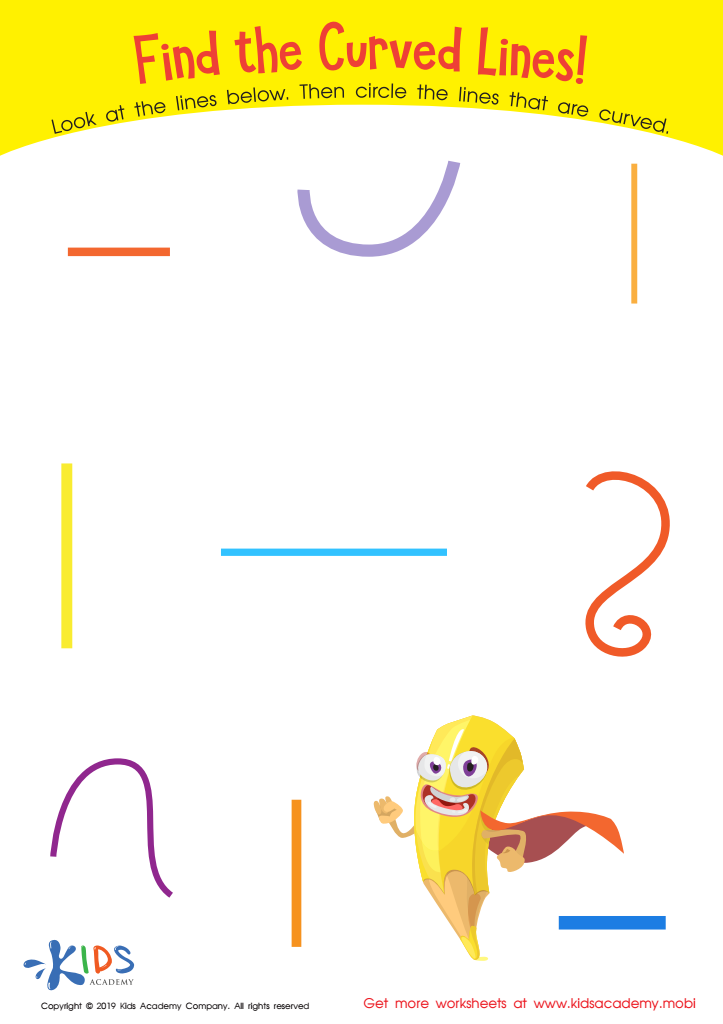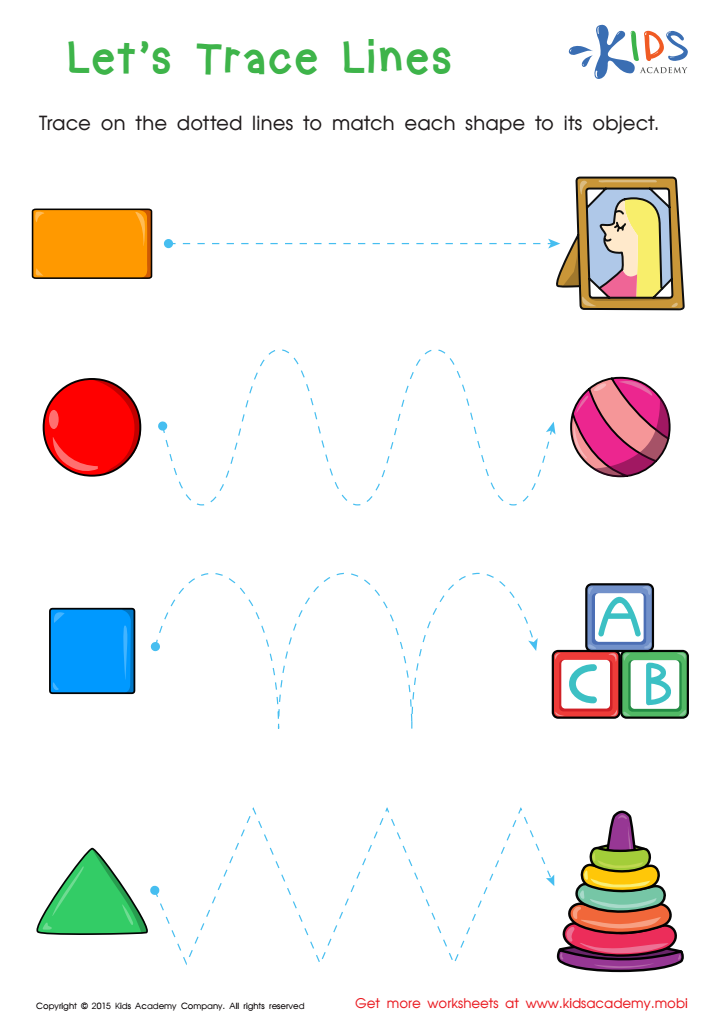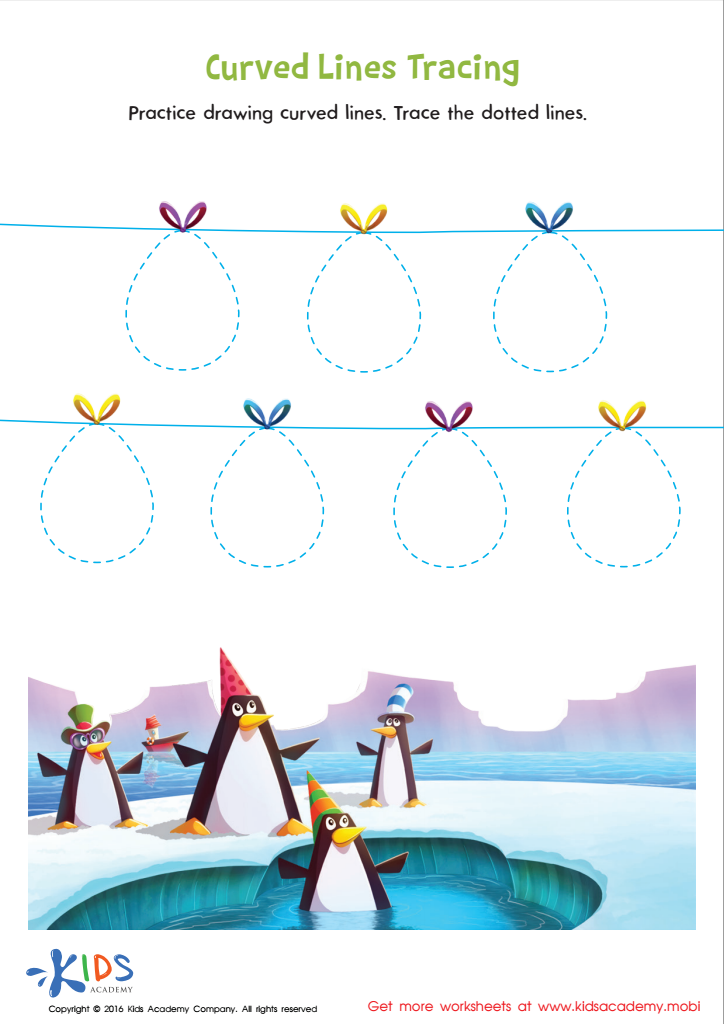Shape Recognition Tracing Lines and Curves Worksheets for Ages 3-5
3 filtered results
-
From - To
Welcome to our Shape Recognition Tracing Lines and Curves Worksheets designed for children ages 3-5! These engaging and interactive printable worksheets help young learners develop essential fine motor skills through tracing various lines and curves. Each activity highlights different shapes, allowing kids to recognize and differentiate them while having fun. Our carefully crafted worksheets foster early cognitive development, making learning about shapes enjoyable and effective. Ideal for parents and teachers, these resources are perfect for both home and classroom environments. Let your child explore creativity while mastering shape recognition with these exciting tracing activities! Start shaping their future today!


Find the Curved Lines! Worksheet


First Words: Let's Trace Lines Worksheet


Curved Lines Tracing Worksheet
Shape recognition and tracing lines and curves are foundational skills that significantly benefit children ages 3-5 in various developmental areas. First, these activities enhance fine motor skills, crucial for tasks like writing, drawing, and self-care. As children practice tracing shapes, they strengthen the small muscles in their hands, improving hand-eye coordination and dexterity.
Second, shape recognition lays the groundwork for early math concepts. By identifying and categorizing shapes, children begin to understand geometry, spatial awareness, and even patterns. These cognitive skills are vital for problem-solving and critical thinking as they progress in their education.
Furthermore, engaging in tracing lines and curves fosters concentration and focus among young learners. As they carefully follow paths, kids enhance their attention span, a critical factor for classroom success.
Lastly, these activities promote creativity and self-expression. Children can explore artistic endeavors by experimenting with shapes and curves, leading to imaginative play.
Parents and teachers should recognize that nurturing these abilities during early childhood sets the stage for lifelong learning, encouraging academic success and personal growth. By incorporating shape recognition and tracing exercises into daily routines, caregivers can support holistic development in a fun and engaging manner.
 Assign to My Students
Assign to My Students

















